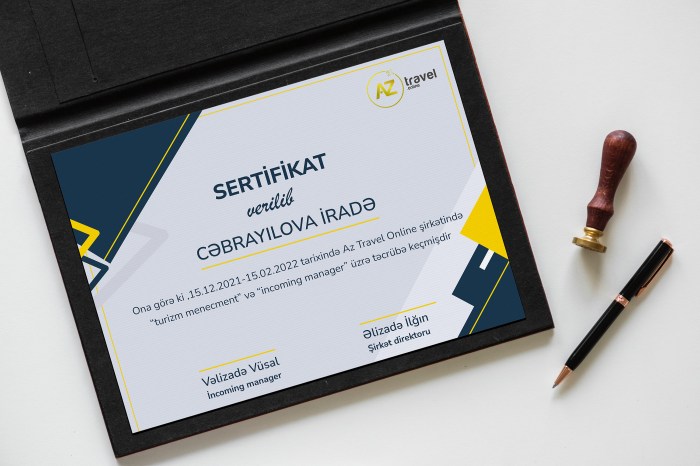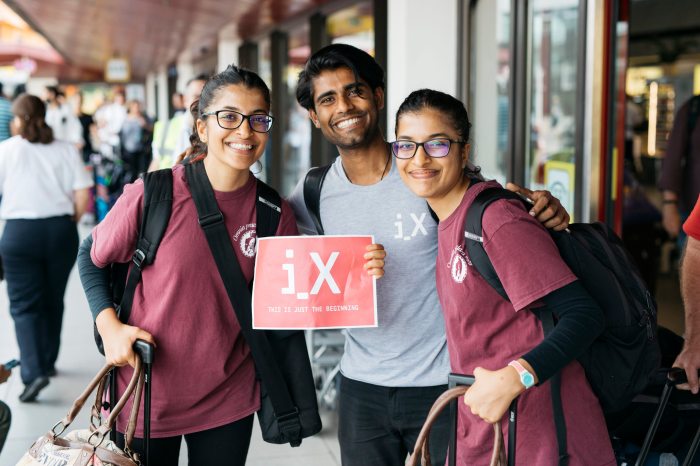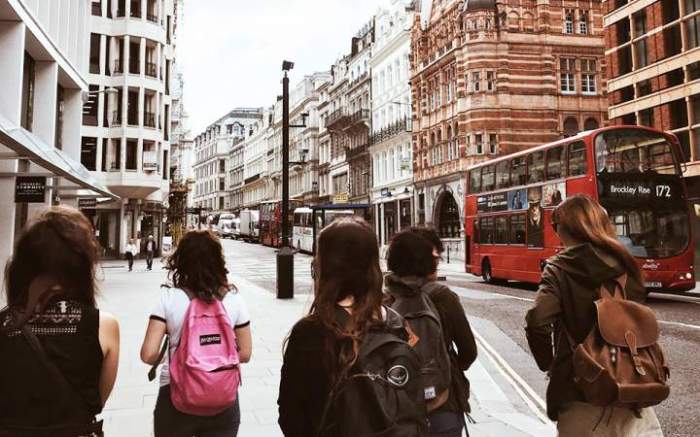Travel Study A Deep Dive
Travel study offers a unique blend of academic exploration and immersive cultural experiences. This comprehensive guide delves into the intricacies of these programs, examining their structure, destinations, and the profound impact they have on students.
From defining the various types of travel study programs to the logistics and financial considerations, this exploration will equip readers with a clear understanding of this increasingly popular educational model. It highlights the potential benefits and challenges, offering insights into how these programs can be designed to maximize their impact on both students and the communities they visit. Ultimately, this exploration aims to illustrate the powerful synergy between learning and travel.
Defining Travel Study Programs
Travel study programs offer a unique and immersive learning experience, blending academic rigor with firsthand exploration of diverse cultures and environments. These programs are meticulously designed to enhance understanding beyond the confines of a traditional classroom setting. They empower students to develop crucial skills like adaptability, critical thinking, and intercultural communication, all while expanding their horizons.
Travel study programs are not merely vacations with educational components; they are meticulously structured learning experiences designed to facilitate a deeper understanding of a particular subject or region. They go beyond simple sightseeing, fostering a deeper engagement with the environment, people, and history of the destination.
Characteristics of Travel Study Programs

Travel study programs typically incorporate structured academic components alongside the travel experience. These components can include lectures, workshops, discussions, and research projects conducted in the field. This approach contrasts with traditional study abroad programs, which may focus more on independent exploration or language immersion. A crucial differentiator is the integration of academic objectives into the program’s itinerary, providing structured learning opportunities that directly connect with the destination.
Types of Travel Study Programs
Travel study programs cater to a broad range of interests and academic disciplines. They can be categorized based on their thematic focus.
- Academic Travel Study Programs: These programs often focus on specific academic disciplines, such as history, anthropology, or environmental science. They feature a structured curriculum, including readings, lectures, and fieldwork related to the program’s topic. For example, a history program in Europe might incorporate visits to historical sites, archives, and museums, while an environmental science program might involve fieldwork in a national park to study biodiversity.
- Cultural Travel Study Programs: These programs emphasize cultural immersion. Students participate in activities such as language classes, cultural performances, and community engagement projects to gain a deeper understanding of the local culture. Examples include programs focusing on traditional arts and crafts in Southeast Asia or community service projects in South America.
- Adventure Travel Study Programs: These programs combine academic exploration with physical activities and outdoor experiences. Students engage in activities such as hiking, kayaking, or rock climbing, while also studying the environmental or historical context of the region. For instance, a program in the Himalayas might combine trekking with the study of mountaineering history or ecology.
Travel Study vs. Traditional Classroom Learning
Travel study programs offer a unique alternative to traditional classroom learning. While traditional learning provides a structured foundation, travel study offers practical application of knowledge in real-world contexts.
| Feature | Travel Study | Traditional Classroom Learning |
|---|---|---|
| Learning Environment | Immersive, real-world setting | Structured classroom setting |
| Learning Approach | Active participation, experiential learning | Passive reception of information |
| Assessment | Fieldwork, projects, presentations | Exams, papers, quizzes |
Key Characteristics Differentiating Travel Study from Other Study Abroad Programs
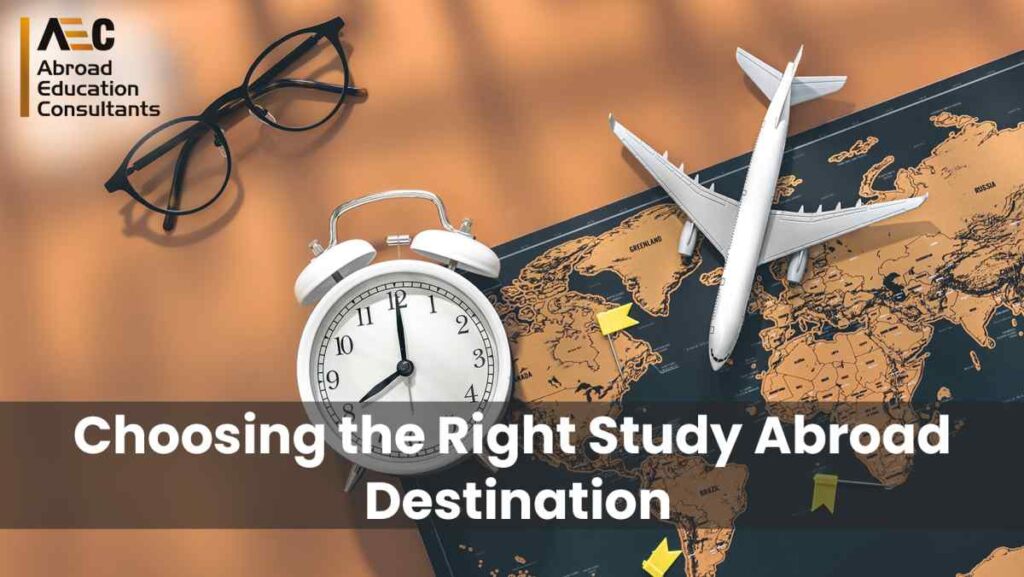
Travel study programs stand out from other study abroad programs by their intentional integration of academic content with travel experiences. This integration differentiates it from programs that primarily focus on independent exploration or language immersion. The emphasis is on structured learning objectives that are directly connected to the destination and its culture.
Learning Outcomes and Benefits of Travel Study
Travel study programs foster a multitude of valuable learning outcomes beyond traditional academic subjects. These include improved intercultural communication skills, enhanced critical thinking abilities, and greater adaptability to new environments. Furthermore, travel study programs promote personal growth and self-discovery.
“Travel study fosters a deeper understanding of global issues, fostering empathy and promoting a more interconnected world.”
Structure and Design of Travel Study
Travel study programs offer a unique learning experience, combining academic exploration with immersive cultural immersion. They transcend traditional classroom settings, allowing students to actively engage with the subject matter in a real-world context. This approach fosters da eeper understanding and appreciation of diverse perspectives.
A well-structured travel study program goes beyond simply sightseeing; it integrates academic rigor with personal growth, enriching both the intellectual and experiential journey. Careful planning and execution are crucial to maximize learning opportunities and ensure a positive experience for all participants.
Framework for a Hypothetical Travel Study Program: History of Southeast Asia
This program focuses on the rich and complex history of Southeast Asia, utilizing historical sites, cultural centers, and interactions with local communities.
- Pre-Departure Preparation: A series of introductory lectures and workshops on Southeast Asian history, geography, and cultural sensitivities is essential. These sessions familiarize students with the region’s historical context, major historical figures, and relevant social dynamics. Students also complete pre-departure readings and engage in preliminary research projects related to their chosen historical period. This phase also includes practical preparations such as visa requirements, health precautions, and appropriate attire.
- In-Country Activities: The program will incorporate site visits to significant historical sites like Angkor Wat in Cambodia, historical museums in Thailand, and cultural landmarks in Vietnam. Guided tours, lectures by local historians, and interactive workshops with local communities will supplement the site visits. Opportunities for independent research and student-led presentations on specific historical topics will be encouraged. Students will also be encouraged to participate in cultural exchange activities like language lessons and cooking classes.
- Post-Program Reflection: After the program concludes, students will participate in a structured reflection session, which includes group discussions, written reflections, and presentations based on their experiences and research findings. This allows students to synthesize their learning and analyze the impact of their journey. The post-program activities also encourage students to further research and write academic papers or create presentations.
Roles and Responsibilities
Clear delineation of roles and responsibilities between organizers and students is crucial for a successful travel study program.
- Organizers (ORs): ORs are responsible for logistical planning, including securing necessary permits, arranging accommodation, transportation, and excursions. They must ensure safety and well-being throughout the program. ORs are also responsible for providing academic support, scheduling lectures, and facilitating interactions with local experts and communities. Furthermore, they need to provide clear guidelines for appropriate conduct in cultural contexts and address any challenges during the program.
- Students: Students are expected to actively participate in all scheduled activities, demonstrate respect for local customs, and contribute to a positive learning environment. They are responsible for completing pre-departure assignments and engaging in in-country activities, including respectful interactions with local communities and active participation in discussions. Students are also expected to reflect on their experiences and produce written or oral presentations based on their observations and research.
Timeline
A well-defined timeline is essential for effective program management.
| Phase | Duration | Activities |
|---|---|---|
| Pre-Departure | 2-4 weeks | Lectures, workshops, readings, research, visa applications, hand ealth preparations |
| In-Country | 2-3 weeks | Site visits, guided tours, lectures, cultural activities, and independent research |
| Post-Program | 1-2 weeks | Reflection sessions, presentations, writing assignments, and feedback |
Assessment Methods, Travel study
Multiple methods can effectively evaluate student learning.
- Pre- and Post-Program Assessments: Pre-program assessments can measure prior knowledge ,and post-program assessments can determine the extent of learning. This allows for an evaluation of the learning process. Pre- and post-program questionnaires can assess students’ attitudes and perspectives regarding the subject matter and the program. These evaluations can be in the form of essays, short answers, or multiple-choice questions.
- In-Country Activities: Observation of participation in activities, including discussions and presentations, is an effective method for assessing learning in real-time. This can be combined with feedback from local experts and peers. The students’ active engagement during site visits and cultural exchange activities provides valuable insights into their learning experience. This includes presentations or projects based on their research and observations.
- Post-Program Reflection: Final written reports, presentations, and reflective journals can provide comprehensive insight into the depth and breadth of student learning. The depth and detail of their reflections, along with the quality of their work, are valuable indicators of their learning process and experience. Evaluations should consider both the intellectual and personal growth achieved by the student.
Destinations and Subjects for Travel Study
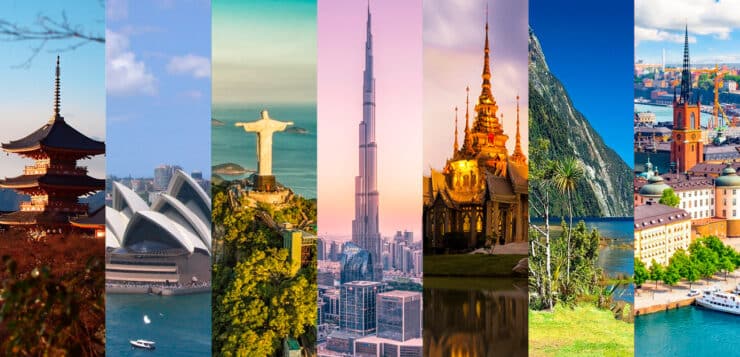
Travel study programs offer a unique opportunity to integrate academic learning with immersive cultural experiences. Careful selection of destinations and subjects is crucial for maximizing the educational value of these programs. The right location can enrich understanding of a particular discipline, while the right subject can bring a new perspective to a familiar destination.
Exploring diverse cultures and historical contexts through travel study programs can deepen students’ understanding of the world and foster a global perspective. These programs can be instrumental in developing critical thinking, intercultural communication, and problem-solving skills. The practical application of theoretical concepts in real-world settings is a hallmark of a successful travel study experience.
Popular Destinations for Travel Study Programs
A variety of destinations are attractive for travel study programs due to their historical significance, cultural richness, or natural beauty. Popular choices often include Italy for its rich artistic and historical heritage, ideal for art history and history programs; Southeast Asia, with its diverse cultures and vibrant societies, suitable for anthropology and cultural studies programs; and South America, where environmental issues are prominent, allowing for environmental studies and sustainability programs. Each destination offers a unique opportunity to connect theory with practice, allowing students to directly experience the subject matter.
Academic Disciplines Suitable for Travel Study
Travel study programs are highly adaptable to a wide range of academic disciplines. Anthropology, for example, benefits greatly from fieldwork experiences in diverse cultural settings. History programs can benefit from site visits to significant historical locations. Environmental studies programs can analyze environmental issues in different geographical contexts. These programs often include a mix of structured lectures, site visits, and community engagement opportunities, creating a holistic learning experience. Specific academic disciplines can tailor the study to the local conditions, maximizing the learning potential of the trip.
Unique and Niche Travel Study Programs
Beyond the standard offerings, there are niche programs designed for specific interests. A travel study program focusing on sustainable agriculture in rural communities in Latin America could combine environmental studies with agricultural science. Another program could delve into the history of film in Hollywood, combining film studies with history and geography. These specialized programs allow for in-depth exploration of a particular topic, fostering a greater understanding of the complexities of the subject.
Incorporating Cultural Contexts
Successfully integrating diverse cultural contexts into travel study programs requires careful planning and sensitivity. Understanding the local customs, traditions, and perspectives is crucial for a respectful and enriching experience. Careful selection of local guides, community engagement activities, and pre-departure cultural awareness workshops can greatly enhance the cultural learning experience. Respect for local traditions is fundamental to ensuring a successful and positive impact.
Comparison of Travel Study Programs
| Discipline | Destination | Focus | Key Activities |
|---|---|---|---|
| History | Europe | European historical events and figures | Historical site visits, museum tours, and archival research |
| Anthropology | Southeast Asia | Cultural practices and social structures | Community engagement, ethnographic fieldwork, and cultural immersion |
| Environmental Studies | Costa Rica | Biodiversity and conservation | Field studies, nature walks, research projects |
Logistics and Practicalities of Travel Study
Travel study programs, while enriching academically, demand meticulous planning and execution. Understanding the logistical processes, financial considerations, safety protocols, and essential documentation is crucial for a successful and smooth experience for all participants. This section details these critical aspects.
Organizing and Executing a Travel Study Program
Careful planning is essential for a successful travel study. This involves coordinating with multiple stakeholders, from the host institution to the local vendors and the students themselves. Travel study programs typically require extensive pre-trip planning, including detailed itineraries, visa applications, and accommodation arrangements. Effective communication with all parties involved ensures a seamless experience for everyone. This includes the development of a robust risk management plan to address potential issues that may arise during the program.
Financial Aspects of Travel Study
Travel study programs come with various costs, including transportation, accommodation, meals, program fees, and potentially local activities. Understanding the breakdown of these costs is vital for students and institutions. Funding options for travel study include student loans, scholarships, grants, and institutional support. Often, institutions offer a variety of scholarships to ease the financial burden on students.
Ensuring Student Safety and Well-being
Student safety and well-being are paramount in any travel study program. Comprehensive safety protocols and risk assessments are implemented. These may include emergency contact information, security procedures, and local guidelines for student behavior. Training on health and safety measures, as well as emergency procedures, is essential.
Travel Study Program Insurance and Health Requirements
Travel insurance is a critical component of any travel study program. Comprehensive travel insurance policies provide coverage for medical emergencies, trip cancellations, lost luggage, and other unforeseen circumstances. Health requirements for the destinations will be stated. These may include vaccinations, necessary medications, and health insurance documentation. Students should be well-informed about any necessary health precautions and medical protocols specific to the destinations.
Essential Documents and Procedures for a Travel Study Program
Thorough preparation is key to ensuring a smooth travel experience. This section includes Artikels essential documents and procedures for a travel study program.
| Document/Procedure | Description |
|---|---|
| Passport and Visas | Students must have a valid passport and any necessary visas for the destinations. These are typically required well in advance of the trip. |
| Travel Insurance | A comprehensive travel insurance policy covering medical emergencies, trip cancellations, and lost luggage is mandatory. |
| Immunization Records | Students must have necessary immunization records, including any vaccinations or health requirements specific to the destinations. |
| Emergency Contact Information | Accurate and readily available emergency contact information is crucial for any unforeseen circumstances. |
| Itinerary and Travel Documents | A detailed itinerary, including flight details, accommodation information, and program schedule, is essential. |
| Health Information | Students must provide relevant health information, including any allergies or pre-existing conditions, to the program administrators. |
| Program Fees and Payment Details | The program fees and payment schedule should be articulated to students. |
Benefits and Challenges of Travel Study
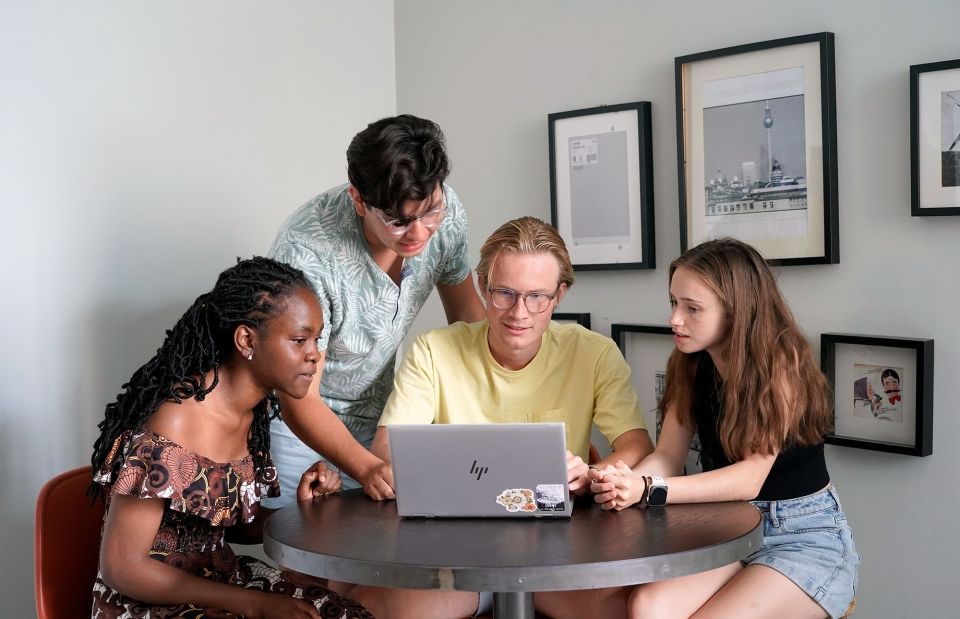
Source: ciee.org
Travel study programs offer a unique opportunity for students to broaden their horizons beyond the classroom. They provide immersive learning experiences that extend beyond textbooks and lectures, fostering personal growth and professional development. However, these programs also present potential challenges that must be carefully considered. Understanding these benefits and drawbacks is crucial for prospective students and program organizers alike.
Personal and Professional Development Benefits
Travel study programs cultivate a multitude of skills valuable for both personal and professional growth. Students develop adaptability, problem-solving abilities, and cultural sensitivity. They gain firsthand experience navigating unfamiliar environments, fostering resilience and independence. These experiences are invaluable for building confidence and self-awareness. Furthermore, students often enhance their communication skills, both written and verbal, by interacting with people from diverse backgrounds. The intercultural exchange and exposure to different perspectives can lead to significant personal development and broaden their understanding of global issues.
Potential Challenges of Travel Study Programs
While travel study programs offer numerous advantages, potential challenges exist. Logistical difficulties, such as coordinating travel arrangements, managing visa requirements, and ensuring the safety of participants, can significantly impact the program’s success. Cultural differences can also present hurdles. Students may encounter communication barriers, misunderstandings, or differences in social norms and etiquette. Addressing these challenges through pre-departure preparation and cultural sensitivity training is essential for a positive travel study experience.
Benefits for the Host Community
Travel study programs can bring substantial benefits to the host communities. They provide opportunities for cultural exchange and understanding. These programs often generate economic benefits for local businesses through increased tourism and spending. Furthermore, they can promote mutual respect and appreciation between the host community and the visiting students. A well-structured travel study program can foster positive relationships and encourage sustainable tourism practices.
Examples of Fostering Intercultural Understanding
Travel study programs can effectively foster intercultural understanding by encouraging interaction with local communities. Structured activities, such as volunteering, attending local events, and participating in cultural exchange programs, facilitate deeper connections with people from different backgrounds. Students can learn about local customs, traditions, and perspectives, promoting empathy and respect for diverse cultures. For instance, a travel study program focusing on sustainable agriculture in a rural community can provide students with insights into local farming practices and the challenges of environmental sustainability, fostering a deeper understanding of global interconnectedness.
Comparison of Different Travel Study Program Models
Different models of travel study programs offer varying levels of structure and immersion. Structured programs typically include pre-departure workshops, planned excursions, and structured group activities, offering a higher degree of organization. Independent study programs, on the other hand, offer more flexibility and freedom, allowing students to explore topics and destinations at their own pace. A comparative analysis reveals that structured programs often offer greater support and guidance, while independent programs foster greater autonomy and self-reliance. Choosing the right model depends on the specific learning objectives and preferences of the students.
Illustrations and Visual Representations of Travel Study
Visual representations are crucial for effectively conveying the essence and impact of a travel study program. They provide a tangible way to showcase the learning experiences, cultural immersion, and personal growth that participants undergo. These visual aids can be powerful tools for attracting potential students and inspiring them to embark on their educational journeys.
Diverse Student Group Engaging with Local Culture
A vibrant image portrays a diverse group of students interacting with locals in a bustling marketplace. Students are engaged in conversation, observing local crafts, and participating in cultural activities. The image highlights the active involvement of students in experiencing and understanding the local customs and traditions. Clothing styles, expressions, and gestures of both students and locals are diverse and varied, showcasing the international scope of the travel study program.
Vibrant Marketplace Scene
Imagine a bustling marketplace, teeming with colorful stalls overflowing with exotic fruits, spices, and handcrafted goods. Students are immersed in the vibrant atmosphere, their faces reflecting curiosity and excitement. The vibrant hues of the stalls, the aroma of spices, and the sounds of local vendors create a vivid sensory experience, emphasizing the cultural immersion aspect of the program. The image showcases the rich tapestry of local life, allowing students to appreciate the nuances of the culture firsthand.
Student Interacting with a Local Expert
A student is seated in a relaxed posture, engaging in a thoughtful conversation with a local expert. The expert, perhaps a craftsperson, artist, or historian, is sharing their knowledge and insights with the student. The setting could be a workshop, a traditional home, or a local museum. The student’s posture and expression convey active listening and genuine interest, emphasizing the interactive learning aspect of the travel study. The image underscores the value of direct engagement with local experts.
Classroom-Style Discussion Among Students
A classroom setting is filled with enthusiastic students, animatedly discussing their travel experiences. Students are sharing stories, pointing out details of their observations, and exchanging insights with each other. Visual aids like maps, sketches, or photographs from the trip are prominently displayed. The atmosphere is vibrant and lively, suggesting the value of peer-to-peer learning and the creation of a learning community. The image effectively communicates the importance of shared experiences and critical discussion.
Student Reflecting on Travel Study Experiences
A student is depicted sitting in a quiet corner, perhaps a café or a scenic overlook, thoughtfully reflecting on their travel study experience. A journal, map, or travel photographs are present, highlighting the personal engagement and reflection component of the program. The student’s expression and posture suggest a deep sense of contemplation and personal growth. The image encapsulates the introspection and personal transformation that travel study can facilitate.
Final Wrap-Up
In conclusion, travel study programs represent a powerful way to combine academic rigor with real-world experience. By meticulously examining the program structure, destinations, logistics, and potential benefits, we’ve uncovered the profound impact these programs can have on students’ personal and professional growth. The discussion has highlighted the importance of careful planning, cultural sensitivity, and the vital role of thoughtful preparation in maximizing the learning experience for all involved. Travel study, therefore, stands as a valuable alternative to traditional classroom learning, enriching education in profound ways.
